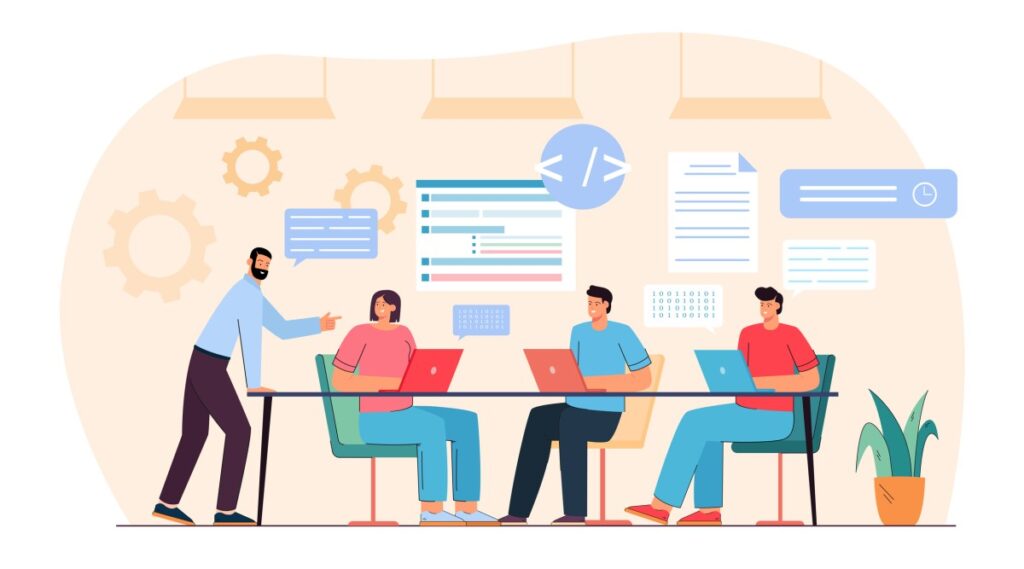Hello, tech enthusiasts! Welcome to another exciting edition of TechCrunch’s AI newsletter. Don’t miss out—sign up to receive it in your inbox every Wednesday.
Massive Investments Signal Strong Interest in AI Coding Tools
In a remarkable turn of events this week, two innovative startups, Magic and Codeium, have garnered nearly $500 million in funding to focus on generating and suggesting code. This staggering amount is particularly noteworthy considering Magic has yet to roll out a product or generate any revenue.
So, what drives investor excitement? The answer lies in the complexities and expenses associated with coding. Both companies and individual developers express a pressing need for solutions that make coding simpler and more efficient.
- Surveys indicate that developers spend almost 20% of their workweek merely maintaining existing code, leaving less time for creating new projects.
- Additionally, reports estimate that companies lose about $85 billion annually due to excessive code maintenance, including technical debt management and optimizing poorly performing systems.
Many in the industry believe AI tools can help alleviate some of these burdens. A recent McKinsey report supports this sentiment, stating AI coding tools can reduce the time required to write new code by 50% and optimize existing code in roughly two-thirds of the time.
Nevertheless, it’s essential to note that an AI-driven coding solution is not a cure-all. The same McKinsey report pointed out that certain complex tasks, especially those requiring specific framework knowledge, may not see significant benefits from AI. In some instances, junior developers even found tasks took longer when assisted by AI tools, suggesting that these technologies are most effective when used to augment human skill, rather than replace it.
Critics have raised concerns regarding the security and intellectual property implications of AI coding tools. Recent analyses have suggested that these tools have contributed to an increase in erroneous code being added to existing codebases. Moreover, some AI models trained on copyrighted materials have inadvertently replicated those codes when prompted, posing legal risks for developers.
Despite these challenges, the enthusiasm surrounding AI coding tools remains robust. A GitHub survey from 2024 found that over 97% of developers have adopted AI in some form, with between 59% and 88% of organizations supporting or encouraging the use of AI programming tools.
Looking ahead, the AI coding tools market is projected to reach a staggering $27 billion by 2032, particularly as Gartner anticipates that 75% of enterprise software developers will utilize AI coding assistants by 2028.
The market is buzzing with activity. Generative AI coding startups such as Cognition, Poolside, and Anysphere have also attracted impressive investments this year, while GitHub’s AI tool, Copilot, boasts over 1.8 million paying users. The promised improvements in productivity have drawn investor confidence, allowing many to overlook ongoing concerns. The question now is whether this momentum will continue and for how long.
Latest News in AI
– **Rising Interest in Emotion AI:** Some venture capitalists and businesses are exploring “emotion AI,” an advanced form of sentiment analysis, but this could raise concerns.
– **Struggles of Home Robots:** Investigating why most attempts at home robotics have faltered, focusing on issues such as pricing and functionality.
– **Amazon Expands Robotics Team:** Amazon has hired the founders of robotics startup Covariant, in addition to bringing on a significant portion of their workforce.
– **Reviving NightCafe:** A look at NightCafe, one of the original AI image generators, which continues to thrive despite facing moderation challenges.
– **Midjourney Ventures into Hardware:** Midjourney has announced plans to explore hardware developments, reinforcing its commitment to innovation.
– **California’s AI Regulation Moves Forward:** California’s SB 1047 has passed through legislature, with hopes now pinned on the governor’s approval.
– **Google Implements Election Safeguards:** In preparation for the upcoming U.S. presidential election, Google is enhancing the safeguards within its generative AI applications, particularly concerning election-related content.
– **Potential Investments in OpenAI:** Reports suggest that Nvidia and Apple are considering investments in OpenAI’s next funding round, potentially valuing the AI leader at a remarkable $100 billion.
Research Spotlight
**GameNGen — The Future of AI-Powered Gaming:**
Researchers from Tel Aviv University and DeepMind have unveiled GameNGen, an AI capable of simulating gameplay from Doom at impressive speeds. This model can predict the next state of a game based on players’ actions—testament to the growing capabilities of AI in real-time gaming.
While GameNGen’s performance is noteworthy, it does face limitations such as graphical glitches and short-term memory issues. It’s a significant advancement, but still has room for improvement before achieving seamless game generation.
Innovative Weather Forecasting Model: Aurora
Microsoft’s latest development, Aurora, is changing weather forecasting by harnessing AI. Trained on diverse weather and climate data, Aurora can provide high-resolution predictions and air quality forecasts with remarkable speed.
Although showing impressive results, Aurora is not without its flaws. Microsoft cautions that users should refrain from relying entirely on its predictions due to potential inaccuracies.
The Current State of AI Data Annotation
In a recent report from Inc., concerns have emerged regarding layoffs at Scale AI, a company specializing in AI data labeling. Sources indicate that many annotators, crucial for training AI models, lost their jobs, raising questions about job security in this field.
While Scale AI states that fewer than 65 people were let go, ambiguity remains about the scale of these layoffs, prompting more scrutiny into the working conditions of AI data labelers.
Conclusion
This week has showcased significant investment excitement in the realm of AI coding solutions, underlining an industry eager for innovative paths forward despite existing challenges. The ongoing evolution of AI technologies, from coding tools to gaming advancements and weather models, reflects not only the rapid pace of change but also the complexities that accompany such progress. As developers and enterprises alike adapt to these emerging tools, the future of technology promises both exciting opportunities and critical discussions surrounding safety, ethics, and the human role in the evolving landscape.




